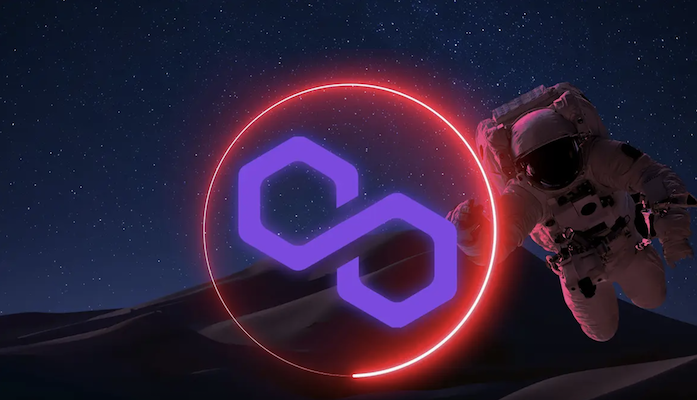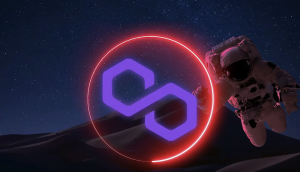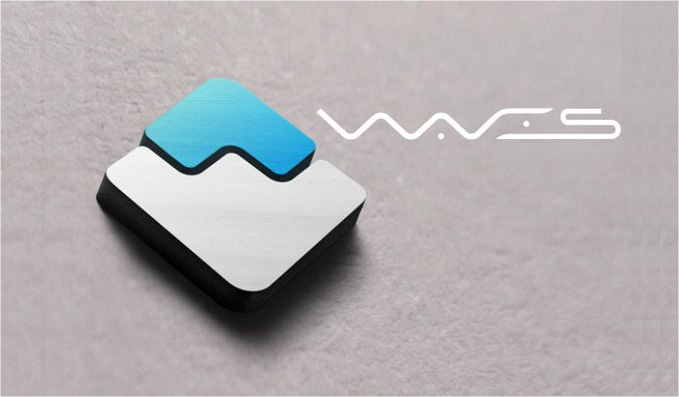Join Our Telegram channel to stay up to date on breaking news coverage
Polygon, one of the most promising projects of the year, has made undeniable progress toward onboarding the masses and having the infrastructure to support them amid a contagion-fueled crypto winter that has chilled VC firms, coin holders, and NFT collectors alike.
In 2022, the perception of Polygon changed from being one of many Ethereum scaling networks to a platform preferred by major household brands and businesses looking to utilize Web3 technology, powering everything from customer loyalty programs to web and metaverse identity. Additionally, it made progress with its plans to use zero-knowledge proof scaling technology to support that growth.
Despite the waning faith in the cryptocurrency industry brought on by the failure of Terra and, more recently, FTX, Polygon has attracted a wide range of sizable, well-known brands that are developing applications on top of the Ethereum scaler over the past few months.
One of the major announcements involved the online forum Reddit, which is the first to demonstrate concrete results. This summer, Reddit released “Collectible Avatar” NFTs based on its Snoo mascot, but instead of charging for them all and turning it into a pure revenue play, the company increasingly gave them away for free to its most devoted users as rewards.
After a short period of time, a Reddit executive revealed that users had made over three million Polygon wallets in order to obtain the NFTs. Despite some Reddit communities being infamously anti-crypto, more than 5 million of the vibrant avatars have since been created across more than 4.3 million distinct wallets, signaling a significant uptick in adoption.
The initiatives of other brands, which are still in the planning stages or have not yet launched, could potentially reach a much larger (and possibly less online) contingent of users.
For instance, Meta is introducing NFT minting through Instagram and will eventually allow its billion+ users to mint their pictures and images on Polygon.
Starbucks, the world’s largest coffee company, is introducing a new NFT-driven rewards program that has already attracted “unprecedented interest” despite only being available to beta testers. In early 2023, Nike also intends to sell digital apparel on Polygon. On Polygon, even Donald Trump’s NFTs are created.
Ryan Wyatt, CEO of Polygon Studios says
Even after FTX, I don’t see people reversing course. I see people thinking of Web3 as a core part of their strategic future, from a tech perspective. The discussions go on, and in my opinion, each and every one of these businesses that considers Web3 will consider Polygon first before making a choice.
Wyatt continues by saying that although Polygon Studios supports brands and partners in a variety of ways, including investment, strategy, and technical advice, the ultimate goal is to become increasingly hands-off over time.
“The easier it will be for these companies to just self-serve onboard,” he claims, the further along we are in the process.
Pushback for Polygon
After several years as the head of YouTube Gaming, Wyatt joined Polygon Studios, the company supporting the decentralized blockchain platform, in March.
He previously stated that as a newcomer to the crypto industry, he saw a need for savvy Web2 tech veterans to team up with the Web3 minds behind Polygon in order to better communicate with businesses considering moves in this space. He referred to that concoction as his team’s “secret sauce” for luring brands who might have looked at alternative platforms.
However, a new backlash that goes beyond the frequent tribal conflicts that erupt on social media has emerged in response to the rise in major brands choosing Polygon. Sandeep Nailwal, a co-founder of Polygon, and Mert Mumtaz, a co-founder of the Solana Beach-based startup Helius, recently engaged in a Twitter argument over Polygon Studios’ investments and onboarding.
https://twitter.com/sandeepnailwal/status/1600232009900531712?ref_src=twsrc%5Etfw%7Ctwcamp%5Etweetembed%7Ctwterm%5E1600232009900531712%7Ctwgr%5E769db58bef8db497e2d070b9cd95fd0b184bbad1%7Ctwcon%5Es1_c10
Mumtaz claimed that Polygon’s core team pays builders to select the platform, claiming that “Polygon uses the money to pay people to use the chain and acquire companies.” In a quote-tweeted thread, Nailwal defended Polygon and attacked Solana while pointing out Solana’s downtime problems. This discussion took over Crypto Twitter for a few days.
All of this is not to say that Polygon is not open to strategic deals, but Nailwal wrote in the thread, “We are not stupid to give millions of dollars for free. “The reality is that every brand wants to build on Ethereum rather than on shoddy L1s. They only use Polygon as a conduit to access Ethereum.
Other founders and builders weighed in on the discussion, adding their opinions as well as offering criticism. The founder of the venture capital firm 6th Man Ventures, Mike Dudas, asserted that the leadership of Polygon was not being truthful about its brand deals.
Dudas stated in a since-deleted tweet that “Polygon absolutely pays for enterprise deals.” “Many of the big names building on Polygon were encouraged to do so by financial support, among many other factors. That’s fine and great business, but don’t lie about it.”
Wyatt replies when asked about the role of financial incentives in luring brands to Polygon,
Polygon has a $100M ecosystem fund where we invest in developers of all sizes. The network effects of this approach have been significant, despite the fact that most significant protocols have received significant funding in recent years with a clear mandate to develop and advance their ecosystems. Without any additional financial incentives, builders continue to build on Polygon because they want to be where other builders are.
In addition, Polygon has experienced technical issues despite Nailwal’s criticism of Solana’s problems. The sidechain network experienced a node issue in March, which caused it to go down for about 11 hours. And in order to address what was referred to as a “critical network vulnerability,” the Polygon blockchain underwent an unexpected (and contentious) hard fork in December.
The arrival of zkEVM
Polygon is developing the technology to support project creators of all sizes through its three zero-knowledge proof (zk) scaling programs in order to support its expanding mainstream adoption ambitions. Such solutions enable significantly higher transaction throughput by grouping together transactions on a separate chain before committing them to the primary blockchain (Ethereum).
Polygon’s zkEVM, which guarantees complete compatibility with the Ethereum Virtual Machine through a comparable environment, appears to be the leader among the group. As a result, it is easily compatible with the Ethereum smart contracts, wallets, and development tools already in use by developers.
The Polygon zkEVM team claims it is the first zkEVM to have a public testnet with source code proving that it is producing ZK proofs. It was fully revealed this summer and launched its testnet in October. The platform aims to support 2,000 transactions per second (tps), which is a significant increase over the 30tps on Ethereum’s mainnet but still falls short of Solana’s recent average.
Every researcher in the field agrees that zk is the future, according to Nailwal, who also explains that “intermediate technologies” like optimistic rollups are merely band-aid solutions.
According to him, progress on zkEVM has already exceeded expectations, including the deployment of the testnet, and a mainnet implementation might not be too far off. Nailwal continues, “I believe we are very, very tantalizingly close to the mainnet, or some form of early mainnet.
Three different zk scaling teams have been acquired by Polygon and implemented, with Polygon Zero and Polygon Miden completing the group. In order to scale their decentralized apps (dapps) to reach broad audiences, creators will have more flexibility if they adopt a multi-pronged approach to zk models, according to Nailwal.
We are very confident that these were done correctly, more so than when we placed these significant bets last year.
Amid price declines and bankruptcy, a “bright spot”
Despite opposition from some crypto communities, Polygon’s contributors and supporters continue to grow. While brand moves tend to garner the most attention, Nailwal says he’s also noticed an increase in activity from Web3-native builders, calling this year’s growth “surreal.”
Certainly, Polygon has not been immune from market difficulties. Its MATIC token has lost 69% of its value since the beginning of the year, which is slightly worse than ETH’s losses (-68%) and BTC’s losses (-65%), but noticeably better than SOL’s losses (-93%).
With the help of sporadic pops recently connected to brand moves and by withstanding the crypto market decline better than many other top coins, MATIC has advanced to the tenth-largest cryptocurrency by market cap. Although Nailwal calls it a success for the ecosystem and his team, he warns Polygon creators and supporters not to let it deceive them.
“What had been perceived as the golden children of crypto [to be] complete scammers and frauds, and not represent this space,” according to Wyatt, were exposed by the 2022 crypto collapses. He adds that Polygon leadership aims to concentrate on building, exert as much control as possible, and prevent “self-inflicted wounds.”
A rare bright spot in what has been a very difficult year for the cryptocurrency industry has been Polygon’s growth in 2022 and ability to draw major mainstream brands. Although Wyatt is pleased with this accomplishment, he does not want it to become a common characteristic of future crypto projects.
He says,
I want us to be a bright spot every year for the space. But I think for the space to truly grow and get to where we need it to, we need a lot of bright spots.
Related
- Where to Buy Polygon (MATIC)
- Next Big Crypto – Top 13 Projects
- Most Undervalued Cryptocurrency Projects to Invest In
Join Our Telegram channel to stay up to date on breaking news coverage


